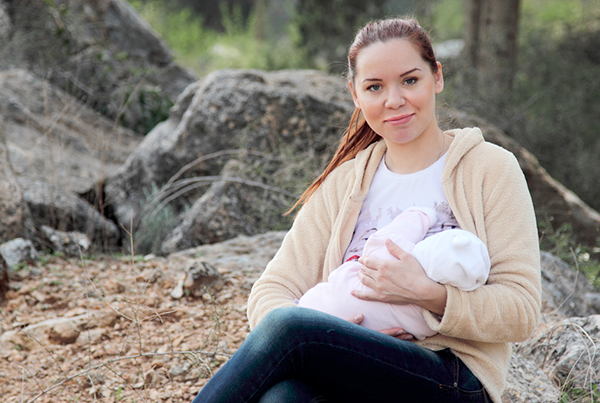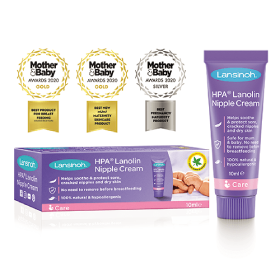Advice Articles
- Home
- Advice Articles
- Baby Skincare
- Breastfeeding In Public
Breastfeeding In Public

Many mothers visit a friend or somewhere with a mother and baby room for their first outing, but breastfeeding does not mean that you have to keep yourself and your baby hidden away when you breastfeed. You will quickly learn to recognise your baby’s feeding cues, so you can prepare yourself and feel comfortable and ready for him to latch on before he is crying for attention from you, and attracting attention from others.
If you feel uncomfortable about breastfeeding in public, you may feel more confident if you attach your baby, and then read a magazine. Sitting in a corner will give you most privacy and, if you are with someone, you could ask them to ensure that you are not in full view of everyone.
Some mothers find that leaking is a problem with a new baby. If your breasts begin to tingle as if they may leak, applying pressure on the nipple with your hand stems the flow, and absorbent breast pads are helpful.
Breastfeeding friendly places
A number of premises do provide designated rooms in which mothers can breastfeed. Sometimes, however, a hungry baby will not wait! And remember that no breastfeeding mother should be ‘invited’ to feed her baby in a toilet – adults and bottle fed babies aren’t made to feed there.
Breastfeeding and the law
Most cultures view a mother breastfeeding her baby as natural. It is again becoming more normal in the UK and happily our governments are working to support breastfeeding in public places.
Breastfeeding in public in Scotland
Under the Breastfeeding etc. (Scotland) Act 2005, it is an offence to prevent or stop a mother from feeding her child in a public place or licensed premises, so long as the child is lawfully allowed to be there. Under this Act, ‘child’ means anyone under two years of age. The offence carries a fine of up to £2,500.
Breastfeeding in public in England and Wales
Under the Equality Act 2010, mums cannot be discriminated against, asked to leave a venue or treated unfavourably because they are breastfeeding. The Equality Act provides specific protection for babies under six months, and after that a breastfeeding mother is protected through the sex discrimination provisions in the Act.
Related Categories
Related Products
-

HPA® Lanolin Nipple Cream for Sore & Cracked Nipples
Sore nipples are very common during breastfeeding and can often be a result of the uncomfortable positioning... View
